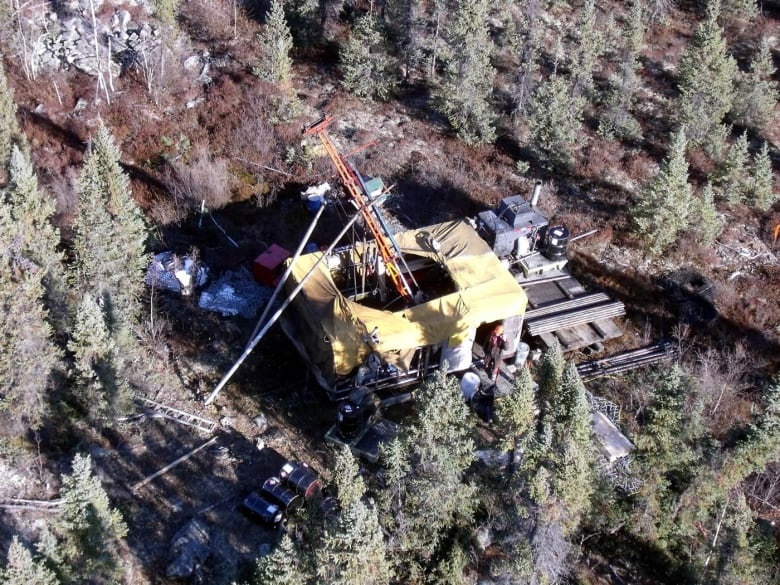Spike in gold prices due to uncertainty, hedge against inflation, says mining economist
Gold’s rise doesn’t hurt in the N.W.T. but exploration remains a game of patience

Gold rose to more than $1,800 USD an ounce in July after floating around $1,300 USD an ounce for the past few years.
Gold hasn't been this high since September 2011. That's good news for gold producers already pouring gold bars, but the Northwest Territories hasn't had one of those since the industry faded to black there in the late 1990s.
Instead, the N.W.T. has active gold exploration camps — junior mining companies drilling holes in the ground to prove the value of their claims.
They don't generate a profit — they're not expected to — so the price of gold doesn't have a bottom line impact. But they're not immune to market fluctuations.
"We're seeing an uptick in interest," said Michael Byron, president and CEO of Nighthawk Gold. "Some of that is reflecting in our share price, which has risen up quite a bit in the past few weeks."

The company owns an advanced exploration project with an inferred gold resource of about 2.6 million ounces near Indin Lake, which is about 200 kilometres north of Yellowknife.
"I think it's fair to say across the board that you're seeing a lot of financing that's getting done for junior miners and junior explorers," Byron said. "That's a huge thing because we've been through quite a drought."
The company halted work at the start of the COVID-19 pandemic but restarted operations in late June. Byron said a new resource estimate on the project is imminent, its fourth since 2012.
"We're excited that gold appears to be back and strong. That is a huge positive for companies like ours so we can continue to drill at the rates we want to."

Hedge against uncertainty
Karl Skogstad, a mining economist and assistant professor in the department of economics at Lakehead University, sees investment in gold as a hedge against uncertainty and inflation.
While the COVID-19 crisis has almost certainly played a role in gold's recent rise, government monetary policies and government debt can't be ignored either, he said.
"People do use gold as a hedge against inflation," Skogstad said. "The central banks have been printing money to deal with a large deficit for a long time. People go through these periods where they say, 'I think this is getting out of hand.'"
So they buy gold and the price of gold goes up. Other investors see the price of gold go up and they decide to buy, and the price goes up further. That continues until people sense a peak has been reached — and the selling begins.
"And then the price starts to come down and other people start to sell, seeing the price fall," Skogstad said. "You kind of go through these cycles."

Skogstad doesn't claim he has a crystal ball and he doesn't invest in gold exploration companies. Too risky, he said. But he does expect the price of gold to remain high, at least for a while.
"My take is that given the state of the economy, I would imagine the price of gold is going to remain kind of high," Skogstad said. "You can call me back in a year and we'll see."
'It is what it is'
Gerald Panneton, a geologist and executive chairman of Gold Terra Resource Corporation, takes the recent bump in gold with composure.
"I keep my head down," Panneton said. "I've been around the gold price since 1979. For me it is what it is. I will live with the gold price that we have."
Gold Terra owns an early-stage gold project near Yellowknife. It claims an inferred mineral resource estimate of 735,000 ounces. The company expects to close another round of financing on Tuesday.
He said the price of gold bodes well but it's not something an exploration company can expect to see results on right away.

"The first one to benefit is the producer, [second is the] guys who are developing projects in the pipeline and finally the explorers," he said.
Higher gold prices makes it easier to raise money for more exploration, but Panneton takes a long view.
"I believe gold has only one way to go — up — because it's a hedge against currency inflation, against the U.S. dollar, against anything," he said.
"It can only go up because there's not that much gold in the world."
Corrections
- A previous version of this story identified the president of Nighthawk Gold as Michael Bailey. In fact, his name is Michael Byron.Jul 28, 2020 12:50 PM CT